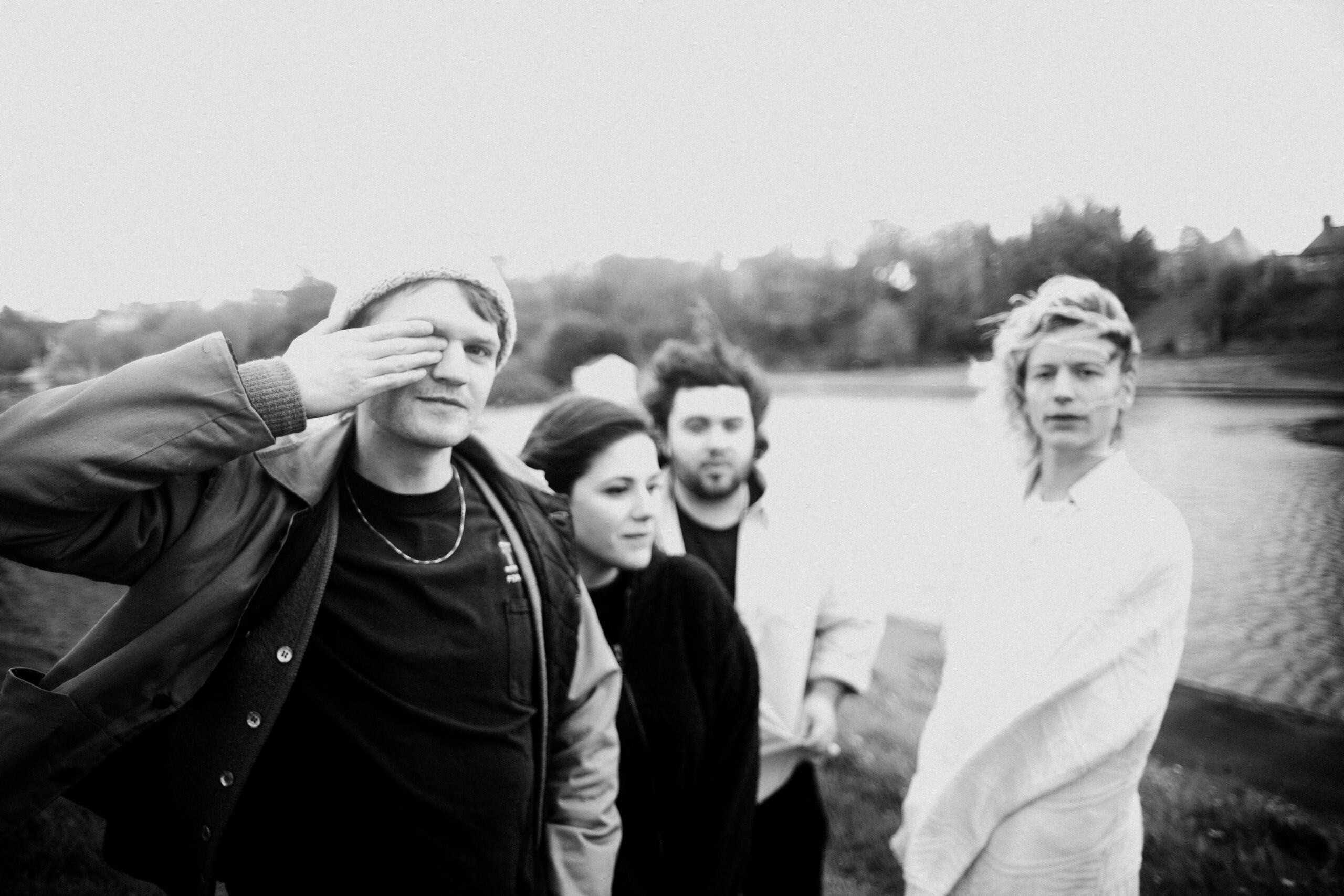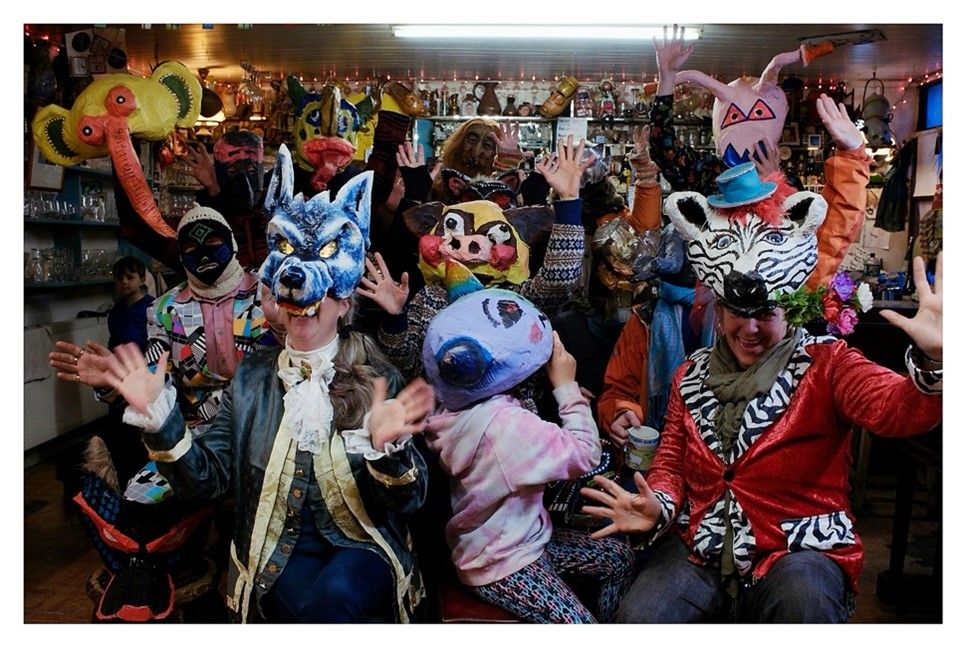Rip It Up And Start Again


Louise Hodgson talks to The Revs about how they lost the plot, then reinvented themselves in the studio
The Revs are like Ireland’s kid brother in band form. Oh how we watched with proud adoration on first hearing ‘Wired to the Moon’, and the spikey-haired antics that followed. But there was a time there when The Revs, by their own admission lost their way, and we were mostly uninterested in what they were doing. Which, musically, wasn’t much really.
The surprising thing is that the band are happy to concede this. Singer and bassist, Rory Gallagher will tell anyone who’s listening that they were inexperienced – that the talent was always there, but the direction was just a bit distorted.
“We were playing music at the start for the sake of playing music and not working in a fish factory in Donegal," he says. "We just fell into that trap where you’re thinking, ‘This is what people want to hear’ and not what you’d want to hear yourself. It’s the biggest mistake you can make.”
Now, however, The Revs have grown up. Their latest self-titled installment has been described as ‘their Final Straw, their Parklife, their Different Class’.
In other words, the all-round critical verdict is a huge thumbs-up. It’s an achievement by any standards: for a band to claw their way out of a stigma and into the blinking light of acceptance and acclaim.
So where did it all go right? “I’d say probably just from having a break to sit back and really think about what we were actually doing, and get back into music really," says Gallagher. "To buy loads of albums and talk about music again, not just about what number we were in the charts.”
In a sense this is the album they always wanted to do but perhaps due to naivety or inexperience never got the chance. “It’s like, four years later, this is our proper debut.”
The difference seems to be that they are beginning to take responsibility for their music. After the live Sonic Tonic, Suck was self-produced: a move that is ambitious for any band, never mind three musicians on the light end of early 20s.
“Even though we would be pretty good with our instruments and we could write songs, we still didn’t have that studio craft that you only pick-up after ten years," Gallagher notes.
"I think you really have to be in your 30s to know where it’s at in the studio. It was a bit cocky to think we could do everything ourselves.”
This time around there was a very decisive move to get help: there was the realisation that in order to get the best out of their next album, The Revs couldn’t pretend to be able to do it all themselves anymore.
And so entered the engineering duo of Stefan Kvarnstrom and Jens Lindgard (who worked on the first Franz Ferdinand album).
These two new ingredients proved invaluable, not only for their knob-twisting know-how, but even just keeping the boys in musical line. During the 20-day studio-time allocated to them in the famous Tambourine Studios in Sweden, The Revs knuckled down and managed to record the vast majority of their album, and were actually happy with it when it was done too!
“We definitely needed an outside influence so we didn’t lose focus of what we wanted to sound like. When you’re in a studio, after a couple of days it can become a bit of a blur. And you just start multi-layering tracks and going, ‘Wouldn’t a saxophone sound nice there!’ and you just end up losing the plot completely. So it was good even just to have somebody there with a whip keeping us on track.”
Swedish men with whips aside, this album seems to have done the trick, just don’t expect Rory et al to rave about it. This time around, the band are very wary of over-publicity. Says Gallagher, "We just want to put it out there and let the music do the work.”
And while the group can admit they are immensely proud of the album, they shy away from actually saying it’s the best The Revs will be. “It still feels like we’re on a learning curve. We’re not there yet, but we’re getting there.”
One thing they are eager to state is that this is their coming-of-age album: they have matured and feel now their music can reflect that. “It just feels like we’ve finally grown-up and we’re in our twenties and it’s our time.” Which, I suppose, is a case of ‘watch this space’.
Latest News
Music Creators
- Affinity Schemes
- Join IMRO
- Benefits of IMRO Membership
- IMRO Mobile App
- Members’ Handbook
- About Copyright
- Royalty Distribution Schedule
- IMRO Distribution Policies
- Competitions & Opportunities
- Travel Grant Form
- Irish Radio & Useful Contacts
- Other Music Bodies in Ireland
- Affinity Schemes
- Music Creator FAQs
- International Partners
- International Touring Guide
Music Users
- Do I Need a Licence?
- Sign Up for a Music Licence
- Pay Your Licence Online
- IMRO and PPI Tariffs
- Dual Music Licence Explained
- Music Licences for Businesses
- Music Licences for Live Events
- Music Licences for Broadcast & Online
- Music licences for Recorded Media
- Music Services B2B
- Music User FAQs
- What’s Your Soundtrack Campaign
- Terms & Conditions for IMRO Events Voucher Competition
- Cookie Policy
- Privacy Statement
- Disclaimer
- www.imro.ie
- Terms & Conditions
- © IMRO 2024
- Registered Number: 133321
Please select login
For Songwriters & Publishers
For Business Owners





